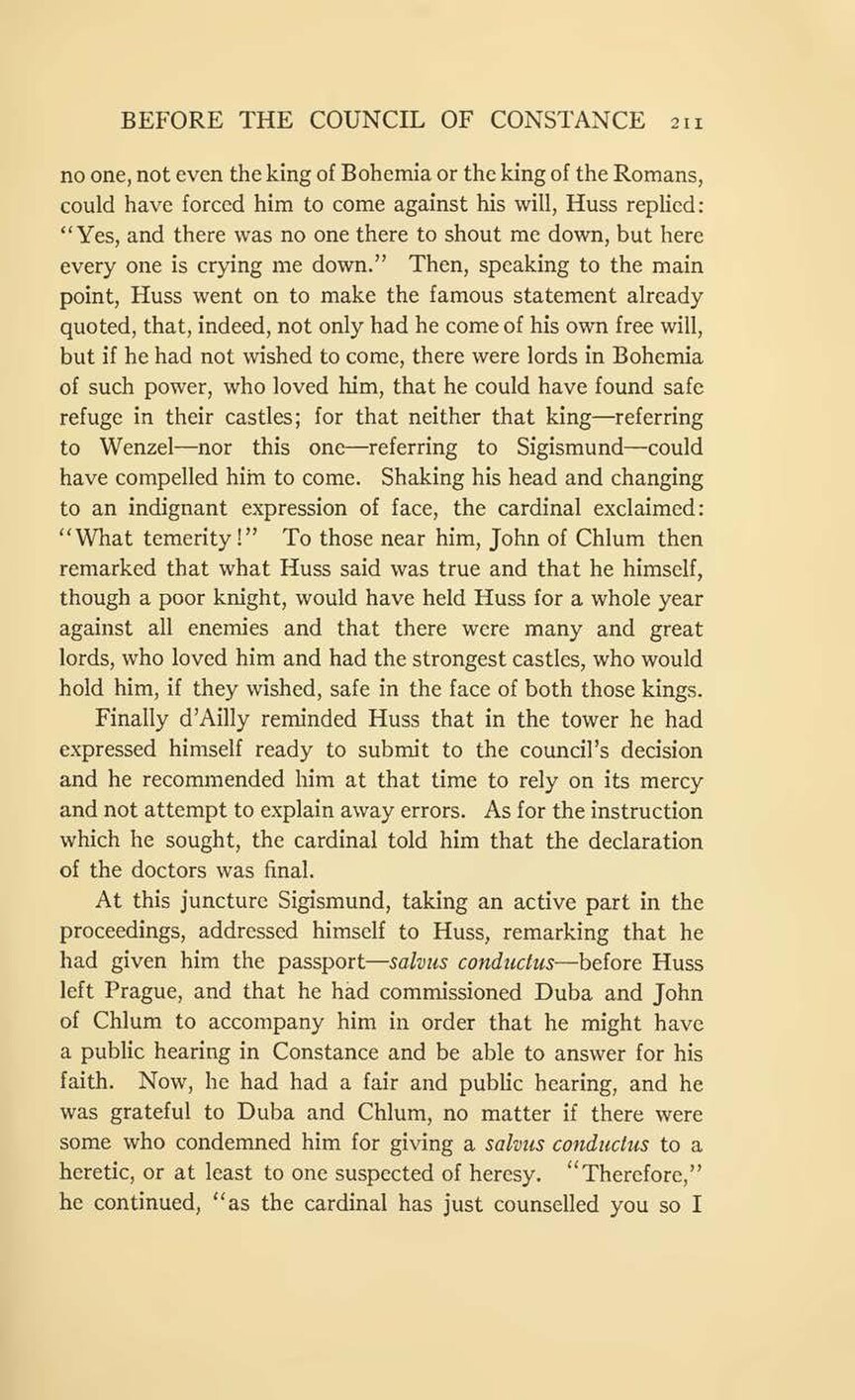no one, not even the king of Bohemia or the king of the Romans, could have forced him to come against his will, Huss replied: “Yes, and there was no one there to shout me down, but here every one is crying me down.” Then, speaking to the main point, Huss went on to make the famous statement already quoted, that, indeed, not only had he come of his own free will, but if he had not wished to come, there were lords in Bohemia of such power, who loved him, that he could have found safe refuge in their castles; for that neither that king—referring to Wenzel—nor this one—referring to Sigismund—could have compelled him to come. Shaking his head and changing to an indignant cxpression of face, the cardinal exclaimed: “What temerity!” To those near him, John of Chlum then remarked that what Huss said was true and that he himself, though a poor knight, would have held Huss for a whole year against all enemies and that there were many and great lords, who loved him and had the strongest castles, who would hold him, if they wished, safe in the face of both those kings.
Finally d’Ailly reminded Huss that in the tower he had expressed himself ready to submit to the council’s decision and he recommended him at that time to rely on its mercy and not attempt to explain away errors. As for the instruction which he sought, the cardinal told him that the declaration of the doctors was final.
At this juncture Sigismund, taking an active part in the proceedings, addressed himself to Huss, remarking that he had given him the passport—salvus conductus—before Huss left Prague, and that he had commissioned Duba and John of Chlum to accompany him in order that he might have a public hearing in Constance and be able to answer for his faith. Now, he had had a fair and public bearing, and he was grateful to Duba and Chlum, no matter if there were some who condemned him for giving a salvus conductus to a heretic, or at Ieast to one suspected of heresy, “Therefore,” he continued, “as the cardinal has just counselled you so I
